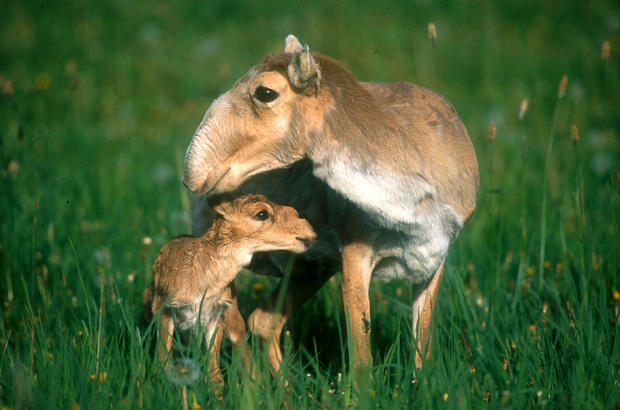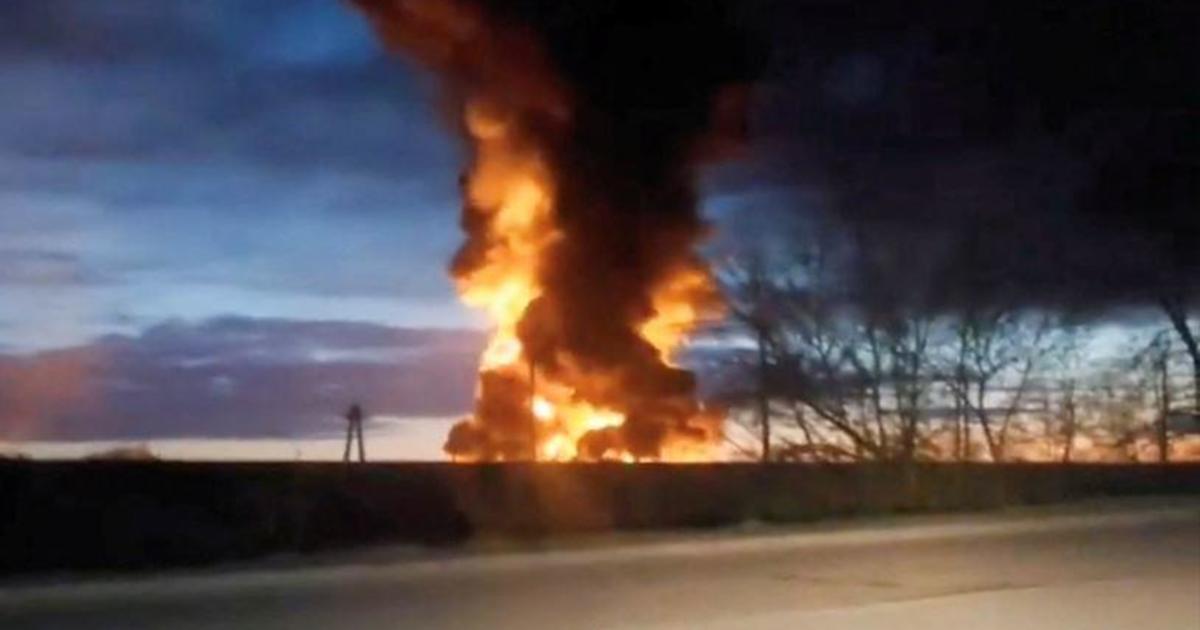Extreme weather behind sudden die-off of rare antelope?
Scientists have determined that unusually warm temperatures and high humidity may have played a role in the mysterious die-off two years ago of half of the world's population of saiga antelope in Kazakhstan, BBC News reports.
Within about a week an entire herd -- 60,000 saiga -- died. As veterinarians and conservationists tried to stem the die-off, they also got word of similar population crashes in other herds across Kazakhstan. The mass dying lasted only a couple weeks across the country.
Researchers concluded then that more than half of the country's total herd of the critically endangered animals -- counted at 257,000 as of 2014 -- died so rapidly at least in part due to a bacterial infection. But exactly how these normally harmless microbes could take such a toll remained a mystery.
Now, Prof. Richard Kock of the Royal Veterinary College London tells the BBC that data collected by his team show there was extreme heat and humidity in the days before the die-off. He told the BBC that while it is unclear exactly how those conditions contributed to the rapid spread of the bacterial infection, it is the "first concrete evidence" of a link to the climate.
Similar weather conditions were recorded, noted Kock, just before previous antelope die-offs in Kazakhstan in 1981 and 1988.
The fear now, say Kock and other scientists, is that with global temperatures continuing to rise another bacterial outbreak is "very very likely," and it could potentially wipe out the species.
"There's theoretically a possibility of extinction of the species entirely," he said. "We have at least got a number of populations - albeit small ones - that are outside the danger zone."
Another researcher on the project, Steffen Zuther of the Frankfurt Zoological Society and the Association for the Conservation of Biodiversity of Kazakhstan, told the BBC that die-offs can erase years of conservation work in a matter of days.
"The triggering of such mass mortality events in saiga through weather conditions shows that not much can be done to prevent them occurring, and therefore how important it is to maintain saiga populations of sufficient size for the species to survive such catastrophes," he said.




